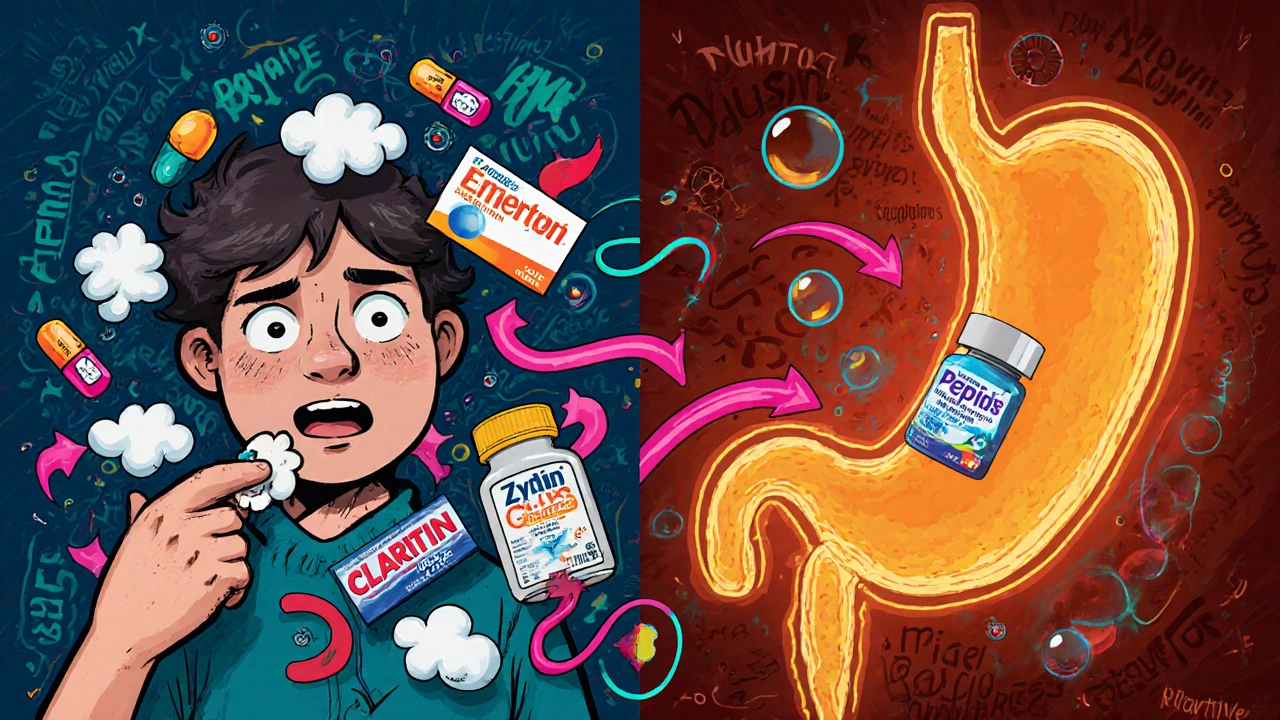H2 Blockers: What They Are, How They Work, and What You Need to Know
When your stomach makes too much acid, it can cause heartburn, ulcers, or gastritis. That’s where H2 blockers, a class of medications that reduce stomach acid by blocking histamine receptors in the stomach lining. Also known as histamine H2-receptor antagonists, they’re one of the most common ways people manage acid-related discomfort without reaching for surgery or long-term proton pump inhibitors. Unlike antacids that just coat the stomach, H2 blockers work at the source—slowing down acid production before it even starts.
These drugs don’t just help with occasional heartburn. They’re used for peptic ulcers, open sores in the stomach or small intestine often caused by bacteria or long-term acid exposure, gastroesophageal reflux disease (GERD), a chronic condition where acid backs up into the esophagus, and even conditions like Zollinger-Ellison syndrome, a rare disorder where tumors cause extreme acid production. Common names you might recognize include ranitidine (though it’s mostly off the market now), famotidine, cimetidine, and nizatidine. Each works similarly, but some have fewer side effects or interact less with other meds.
People often wonder how H2 blockers compare to PPIs like omeprazole. H2 blockers kick in faster—usually within an hour—but their effect doesn’t last as long. That’s why they’re great for nighttime heartburn or when you need quick relief after a spicy meal. PPIs are stronger and better for long-term healing, but H2 blockers are simpler, cheaper, and safer for occasional use. You won’t find them in every pharmacy aisle, but they’re still widely prescribed because they work reliably.
What you won’t see in the posts below are flashy claims or miracle cures. Instead, you’ll find real, practical advice—like how H2 blockers interact with other meds, why timing matters, what foods make them less effective, and when switching from one H2 blocker to another actually helps. You’ll also see how they fit into broader treatment plans for conditions like gastritis, ulcers, and even some cases of acid reflux linked to anxiety or stress. No fluff. No jargon. Just clear, usable info from people who’ve been there.

